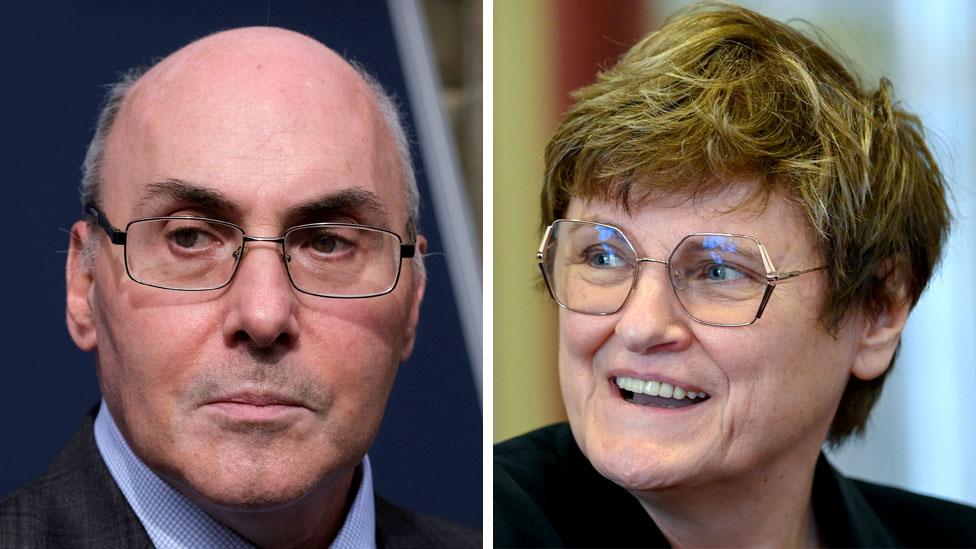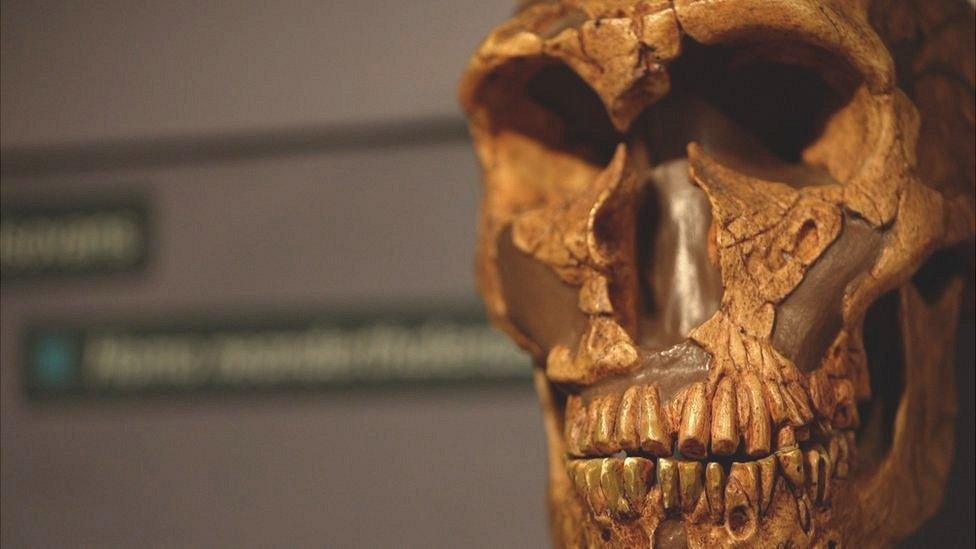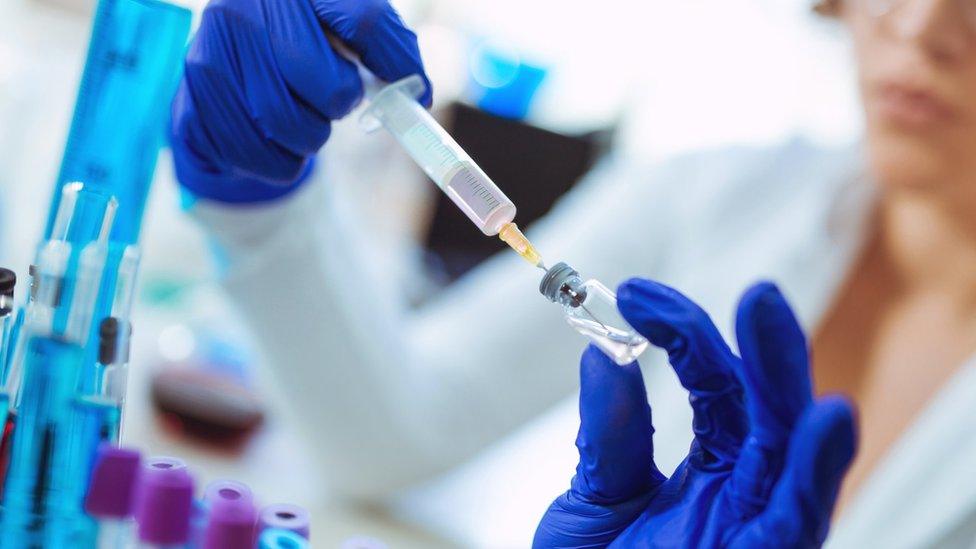Nobel Prize goes to scientists behind mRNA Covid vaccines
- Published

Professors Drew Weissman (left) and Katalin Kariko
The Nobel Prize in Physiology or Medicine has been awarded to a pair of scientists who developed the technology that led to the mRNA Covid vaccines.
Professors Katalin Kariko and Drew Weissman will share the prize.
The technology was experimental before the pandemic, but has now been given to millions of people around the world to protect them against serious Covid-19.
The same mRNA technology is now being researched for other diseases, including cancer.
The Nobel Prize committee said: "The laureates contributed to the unprecedented rate of vaccine development during one of the greatest threats to human health in modern times."
Vaccines train the immune system to recognise and fight threats such as viruses or bacteria.
Traditional vaccine technology has been based on dead or weakened versions of the original virus or bacterium - or by using fragments of the infectious agent.
In contrast, messenger ribonucleic acid (mRNA) vaccines use a completely differently approach.
During the Covid pandemic, the Moderna and Pfizer/BioNTech vaccines were both based on mRNA technology.
Professor Kariko and Professor Weissman met in the early 1990s when they were working at the University of Pennsylvania, in the United States, when their interest in mRNA was seen as a scientific backwater.
"I would go to meetings and present what I was working on, and people would look at me and say: 'Well, that's very nice, but why don't you do something worthwhile with your time mRNA will never work.'. But Katie and I kept pushing," Professor Wiseman told the BBC's Newshour programme.
Asked about how the pair first reacted to hearing the news that they had won the prize, Professor Kaliko said she thought it was "just a joke" initially.
In a similar vein, Professor Weissman said: "I was you know, sort of overjoyed and then disbelief, and a little bit suspecting that there was some anti-vaxxer playing a prank on us."
"But when we saw the announcement, we knew it was real and there was just a fantastic feeling."

An mRNA Covid vaccine contains the genetic instructions for building one component - a protein - from the coronavirus.
When this is injected into the body, our cells start producing lots of the viral protein.
The immune system recognises these as foreign so it attacks and has learned how to fight the virus, and therefore has a head start when future infections occur.
The big idea behind the technology is that you can rapidly develop a vaccine against almost anything - as long as you know the right genetic instructions to use.
This makes it far faster and more flexible than traditional approaches to vaccine development.
There are even experimental approaches using the technology that are teaching patients' bodies how to fight their own cancers.
Scientists analyse a patient's tumour, look for abnormal proteins being produced by the cancer that are not in healthy tissue and develop a vaccine to target those and inject that into the patient.
Profs Kariko and Weissman made the crucial breakthroughs that made mRNA vaccines happen.
The principle taps into normal human biology. RNA's role in our body is to convert the instructions that are locked away in our genetic code, or DNA, into the proteins that our body is built from.
However, there were challenges. But by refining the technology, the researchers were able to produce large amounts of the intended protein without causing dangerous levels of inflammation that had been seen in animal experiments.
This paved the way for developing the vaccine technology for use in people.
Katalin Kariko is now a professor at Szeged University in Hungary and Drew Weissman is still working as a professor at the University of Pennsylvania.

Previous Nobel winners
2022 - Svante Paabo for his work on human evolution.
2021 - David Julius and Ardem Patapoutian for their work on how the body senses touch and temperature.
2020 - Michael Houghton, Harvey Alter and Charles Rice for the discovery of the virus Hepatitis C.
2019 - Sir Peter Ratcliffe, William Kaelin and Gregg Semenza for discovering how cells sense and adapt to oxygen levels
2018 - James P Allison and Tasuku Honjo for discovering how to fight cancer using the body's immune system
2017- Jeffrey Hall, Michael Rosbash and Michael Young for unravelling how bodies keep a circadian rhythm or body clock
2016 - Yoshinori Ohsumi for discovering how cells remain healthy by recycling waste


Sign up for our morning newsletter and get BBC News in your inbox.

Related topics
- Published2 October 2023

- Published3 October 2022

- Published6 January 2023
